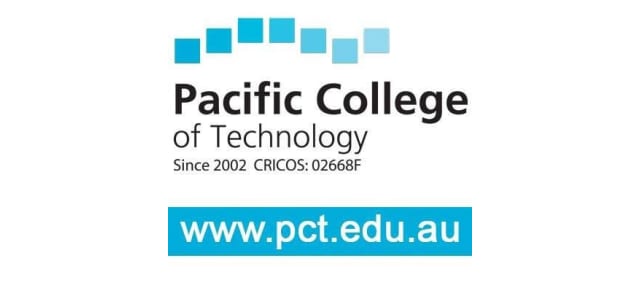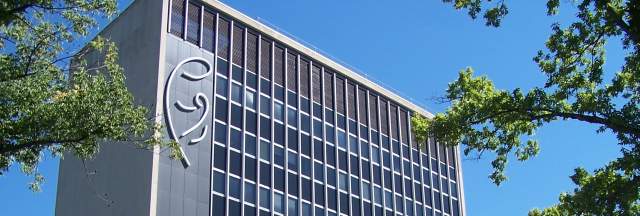Advanced Diploma of Network Security
Sydney, Australia
Advanced Diploma
DURATION
52 weeks
LANGUAGES
English
PACE
Full time
APPLICATION DEADLINE
EARLIEST START DATE

STUDY FORMAT
On-Campus
Key Summary
This qualification provides the skills and knowledge for an individual to plan, design, manage and monitor an enterprise information and communications technology (ICT) network as an independent ICT specialist or as part of a team responsible for advanced ICT network security systems. The qualification has a high-level ICT technical base with appropriate security units and the ability to specialise in a number of areas, including voice, wireless, network infrastructure and sustainability.
Upon successful completion of all units in this course, students are eligible for the Advanced Diploma of Network Security-ICT60215. Possible job titles relevant to this qualification include:
- e-security specialist
- ICT security specialist
- IT security administrator
- IT security analyst
- IT security specialist
- systems/network administrator
- network security analyst
- network security specialist
- network security administrator
- senior network administrator
- systems security analyst
Pathways from the qualification:
ICT Vocational Graduate Certificate qualifications or other higher education sector qualifications. Advanced standing will be offered but will vary from university to university.
Major study areas:
- Install & manage networks
- Internet infrastructure
- Project management
- Network design
- Business needs & technical requirements
Entry Requirements
Requirements for entry into this qualification are as follows:
- The students must be over 18 years of age,
- The students must have a successful completion of Australian Year 12 or equivalent.
Preferred pathways for candidates considering this qualification include:
- After achieving ICT50415 Diploma of Information Technology Networking, or other relevant qualifications or units equivalent to the core of ICT50415 Or
- With documented vocational experience in a range of work environments in senior network support roles, including administrator, operations analyst, technician, operations or support coordinator/technician.
English Language Proficiency Requirements
Primary evidence:
In order to be offered a place at Pacific College, the overseas student must demonstrate the evidence of one of the following tests:
- IELTS 5.5*
- TOEFL iBT 46
- PTE Academic 42
- Cambridge English: Advanced (CAE) 47
- OET Pass
- TOEFL PBT 527
Alternative evidence:
- The overseas student who has scored below the minimum required score in the tests mentioned above, he/she must have undertaken or agree in undertaking of English Language program (ELICOS) of at least 10 weeks.
or
- The overseas student who has studied in Australia for as at least 6 months will be deemed to have required level of language proficiency provided the application is accompanied by a proof that he/she has duly completed Certificate IV or above qualification and the medium of instructions was English.
or
- The on-shore student not having IELTS/TOEFL/ PTE Academic/Cambridge or ELICOS certificate may also satisfy the language requirement, if they can demonstrate ALTE Level 3 or above score in the test conducted by the College.
Course Structure and Competency Units
To attain the ICT60215 Advanced Diploma of Network Security, the ICT Training Package requires students to complete 12 units comprising of five (5) core units and seven (7) elective units as set out in the packaging rules of ICT60215 Advanced Diploma of Network Security.
There are no specified pre-requisite or entry requirements as set out by the training package. However, in order to achieve the intended course outcome and to align with direct enrolment practices into the qualification, Pacific College of Technology recommends that student with limited understanding of Information Technology, may wish to consider following the above mentioned “Preferred pathway” into this course.
Teaching and Assessment Method
The teaching method includes theoretical concepts and classroom discussion with cases from different organisations. Students will be facilitated to develop skills and knowledge to fulfil the requirements for each competency units and their elements.
All assessment of units of competence will be conducted in accordance with the assessment guidelines and competency standards of the officially endorsed Training Package for this qualification.
The assessment, procedures and the criteria for judging performance will be made clear to, all participants enrolled in this course. Assessments will be conducted for each part of the training program, and the processes will be valid, reliable, fair and flexible.
Assessment processes will cover the broad range of skills and knowledge needed to demonstrate competency and will integrate knowledge and skills with their practical application. Assessment processes will provide for the recognition of competencies no matter how, where or when they have been acquired.
In general during this course, assessment involves students’ performance on range of criteria including class performance and presentation, oral and written test, demonstrations and other class works.
Students will receive feedback upon the completion of the assessment process from relevant assessor. If students are not satisfied with the assessment result, they can appeal for reassessment according to the College reassessment policy and procedure (refer to the Student Handbook).
Campus Location
The campus is conveniently located in Auburn, which is approximately 20 km from Sydney CBD and is just 3 minutes walk from the Auburn Train Station. The street address is Level 1, 91-95 Rawson Street, Auburn NSW 2144.
Local Environment and Facilities
Australia is a multicultural country. A large number of international students come to Australia to pursue their study annually. Our campus is situated in Sydney, one of the beautiful cities in the world. Sydney has renowned places to visits including beautiful Opera House, Harbour Bridge, and Bondi Beach.
Our class consists of students from different countries of Asia, Africa and Europe. Classrooms are equipped with modern computers with latest equipments and high-speed Internet search facility. Other facilities include library with resource books and reference books, kitchen, etc.
Our classes are small in size and our friendly lecturers focus on individual students needs during the learning process.
Many lecturers use multimedia projectors or overhead projectors for visual aids during their classes. Computers are available in computer-labs for student use. Students can use these computers during their class hours to complete their assignments, or for Internet research. Assignments can be printed for a nominal charge or can be submitted to lecturers through e-mail.
Cost associated to study in Australia
The cost of receiving an education in Australia is fairly high, taking into account tuition fees, living costs, and international travel. Living cost always depends on individual students however, the Department of Immigration and Multicultural and Indigenous Affairs advises students to have AU$18,610 per year. Therefore you have to make arrangements to ensure payment of costs incurred in Australia before making the move.
Other Fees
- Course Application Fee: AU$150
- Accommodation Placement Fee: AU$200
- Airport Transfer Fee: AU$200
Explore Similar ProgramsSimilar Programs













